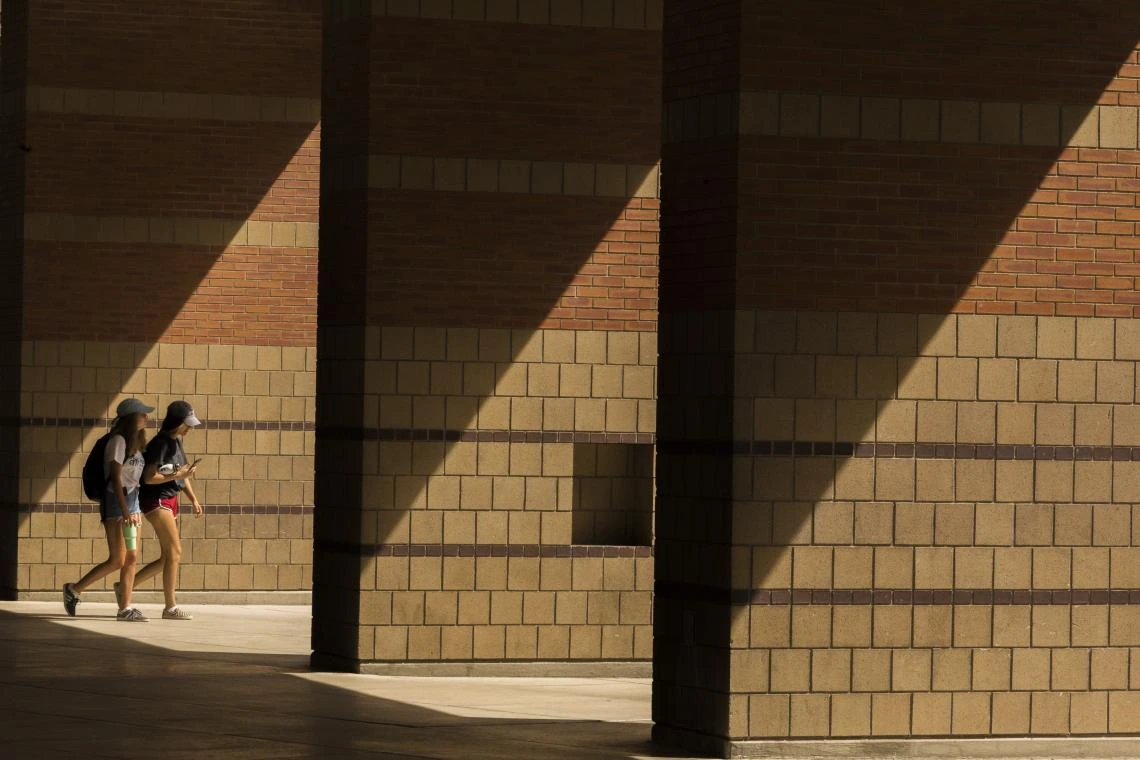Wildcat Community Helps Students in Need
The number of Student Emergency Fund applicants and donors has exceeded 1,000 since the pandemic began.

When offices and businesses closed due to the COVID-19 pandemic, many University of Arizona students lost their jobs. Some needed to find alternate housing or faced new child care costs.
In response, the University of Arizona Foundation, the Dean of Students Office and university leadership collaborated to start a crowdfunding campaign, called Fuel the Response, to raise money for the Student Emergency Fund.
"We have worked to make this process simple so that we can speed funds directly to those most in need," University of Arizona President Robert C. Robbins said in a video message. "Your support means so much to individual students who are absolutely struggling today with financial hardship as a result of this staggering pandemic."
More than 1,000 donors have given. An alumni couple that made an anonymous donation of $250,000, and another anonymous donor gave $100,000, bringing the running total to $499,000. However, with the average award at $500, the Arizona Student Emergency Fund falls short of being able to help all 1,200 students who have applied to date.
"It's been amazing. This has been the most successful crowdfunding program we've ever had. But the need is great, and we are close to expending the emergency fund in its entirety," said John-Paul Roczniak, president and CEO of the University of Arizona Foundation. "We're still raising money for our students and hope that our community will continue to rally around them."
Andrea Villaseñor, a senior majoring in electrical and computer engineering, felt relieved when she received money from the fund.
Villaseñor lost substantial work hours from her on-campus job and was struggling to pay her April rent and utilities. She received a $450 check in time to make her payments. Now she can perform her job online and she's moving in with her parents, who live in the Yuma area.
"They were really fast. I was super impressed with that," said Villaseñor, who plans to attend graduate school at UArizona in the fall.
Naomi Bradford is a first-year student who became an emancipated minor when she was 17 and her guardian died. Her on-campus job shut down due to the pandemic. Thanks to a decision by the university to continue paying student employees through the end of the semester, she'll continue to earn money – but not enough to meet her needs.
An award of $500 from the Student Emergency Fund helped Bradford pay her rent and cover expenses from a break-in.
"It was just a crazy help. I feel much more secure financially, which is awesome," said Bradford, who will begin nursing school in the fall.
All enrolled students are eligible, said Associate Dean of Students Chrissy Lieberman. A committee – composed of employees who regularly work with students facing housing and food insecurity – reviews each application. They check to ensure an award wouldn’t jeopardize any other financial aid and look for other funding sources, such as fellowships for graduate students. After this process, it takes about three days for a check to be mailed to the student.
The Dean of Students Office helps students who are not awarded funds to access other resources. Students who receive emergency funds also are made aware of university and community organizations that can help them, Lieberman said.
"Whatever money we give will be helpful, but it's also important for the students to know about all of their resources so they can stretch those dollars as far as they can," she said.
Applicant data analyzed by the Dean of Students Office through April 21 show the students who are applying are more likely to be low-income and first-generation compared with the student body overall. Of all Student Emergency Fund applicants, 47% are Pell grant recipients, compared with 25% of all undergraduates. The applicant pool is 50% first-generation, versus 34% of all undergraduate students.
The U.S. Department of Education announced that UArizona will receive funding through the Higher Education Emergency Relief Fund that was authorized as part of the federal Coronavirus Aid, Relief, and Economic Security Act. The university will provide half of the money directly to students.
Extra Info
UArizona students may apply for assistance from the Student Emergency Fund and access information about other resources at deanofstudents.arizona.edu.
For the latest on the University of Arizona response to the novel coronavirus, visit the university's COVID-19 webpage.
For UANews coverage of COVID-19, visit https://uanews.arizona.edu/news/covid19.

